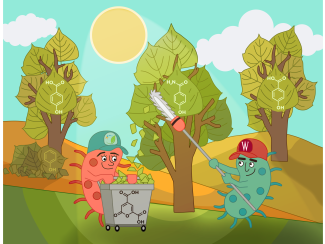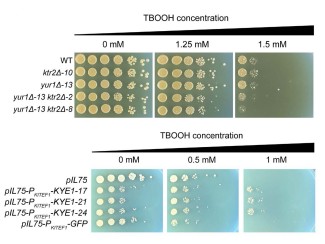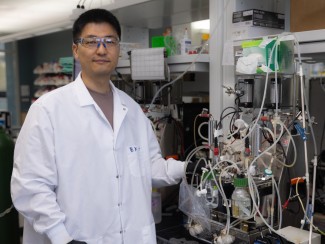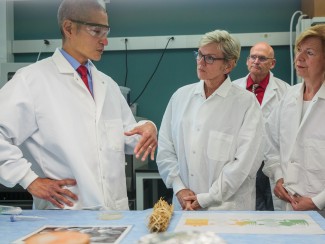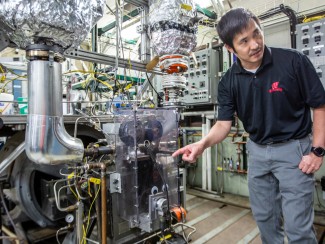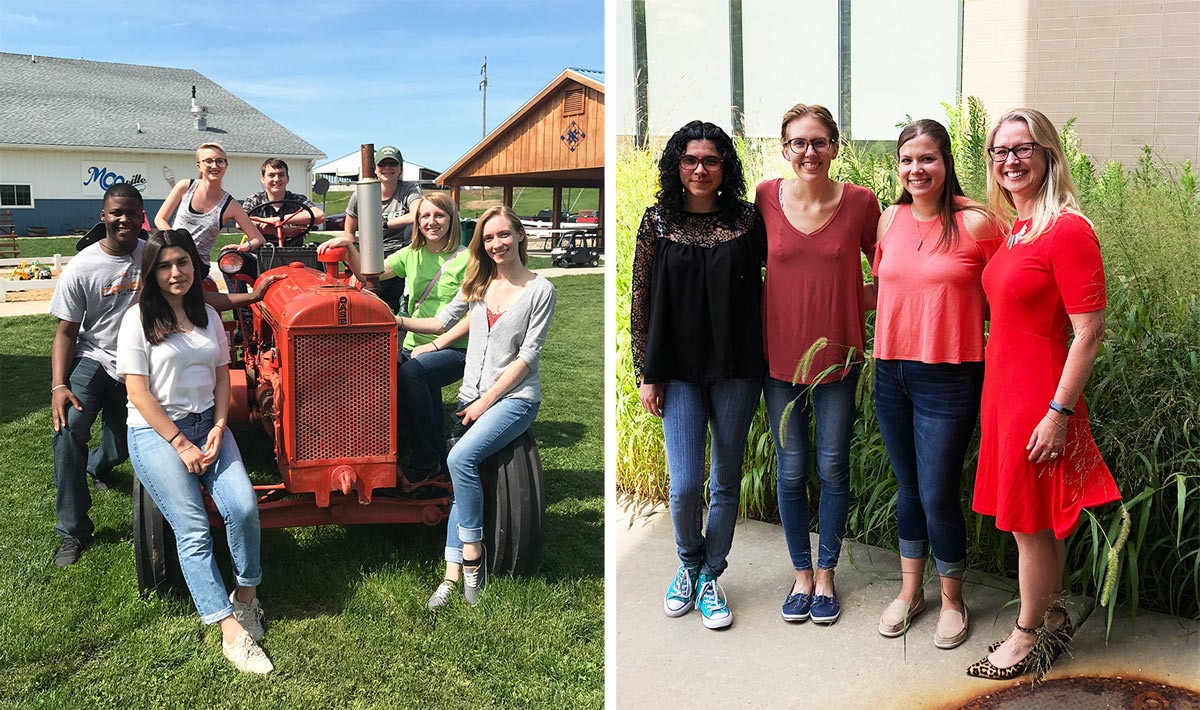
The Great Lakes Bioenergy Research Center hosted 10 REU (Research Experience for Undergraduates) students in summer 2018. Seven students participated in bioenergy-related research at Michigan State, and three at UW–Madison. We asked them to tell us a little about their interests, motivations, and/or goals related to bioenergy research at GLBRC. The student's quotes and pictures are included below. If you'd like to learn more about the REU program, listen to our Associate Director, Tina Nielsen, talk about it with Amber Smith, WiScience SIGNALS program director, on the Larry Meiller show on Wisconsin Public Radio here: https://www.wpr.org/shows/bioenergy-research-experience-undergraduates
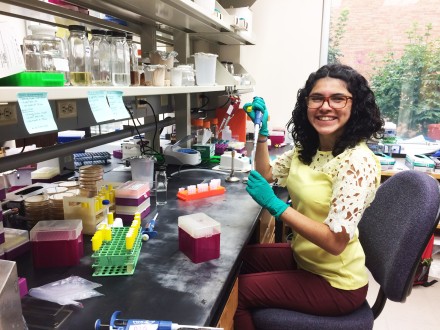
Damayanti Ramos-Rodriguez
"This saying sparked my interest in bioenergy research: ‘This planet is our one and only home. We have no other choice - we must care for it.’
I want to study different ways to help our ecosystem and human livelihood! GLBRC focuses on creating biofuels and bioproducts, which would help reduce pollution on our planet. I'm very intrigued by the central question of bioenergy research, which is how best to transform plants into biofuels. I am also fascinated by the idea that we have the power to change plant genetics to produce products of our own interest. My participation in this program will help me get the necessary knowledge to leave a better world for our future generations. Together we can change the world!"
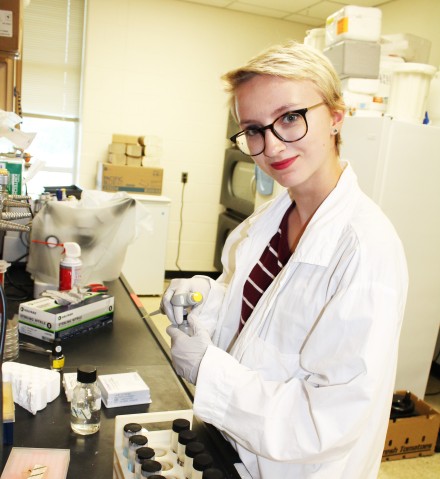
Alexis Scott
"I originally became interested in bioenergy research as a result of my college's emphasis on sustainability. I was excited to see that my biochemistry and molecular biology education could provide me with the tools to work towards developing sustainable energy solutions! Additionally, I was inspired by the interdisciplinary and collaborative nature of bioenergy research, as scientists across disciplines conduct research relevant to bioenergy. I sought out this program in order to both apply my knowledge to a project and to gain more exposure to the scientific process. Being an REU student with GLBRC has given me exposure to important and impactful research, and the program has enlightened me on the future direction of energy as well as the challenges associated with harnessing resources for energy.
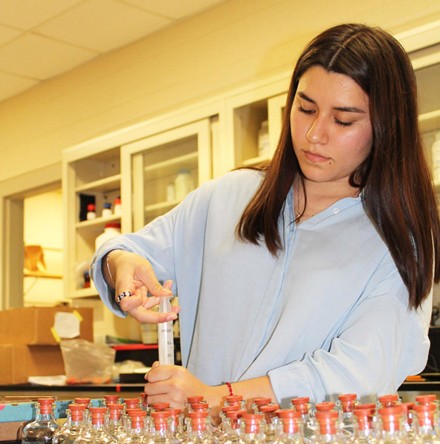
Jenifer Gonzalez
"GLBRC is a great opportunity for me to grow as an individual and future researcher. As a biology undergrad student without any lab experience outside the classroom, I look forward to working in the lab and learning lab protocols, safety and how to properly use lab equipment. I hope to get a good sense of the scientific process, be able to generate research questions and data, analyze data, and make connections. Most importantly, I hope to learn the importance of bio-energy crops and how to communicate science effectively."
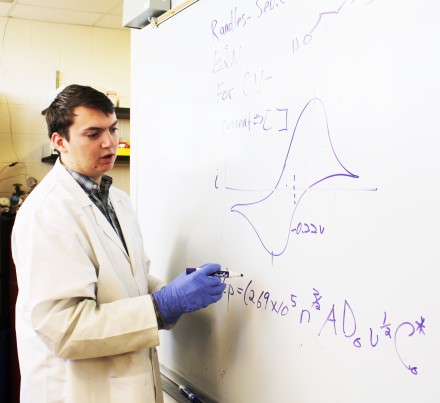
Caleb Geissler
"My research is on developing an organic catalyst that can be used to break down lignin, which is a large part of the cell wall in plants. Once lignin is broken down, it can be converted into fuels or specialty chemicals that are usually made from petroleum. I am trying to use electrochemistry to recycle the chemicals that can break apart lignin to create a sustainable and economical catalytic process. What excites me most about this research is the promise of being able to replace not only conventional gasoline, but all petroleum-derived products. People often talk about renewable energy sources, which are important, but in order to stop global warming we need to eliminate all use of petroleum, including petrochemicals. Being part of a research project focused on saving the planet has such clear importance and application that it’s hard to not be passionate about it."
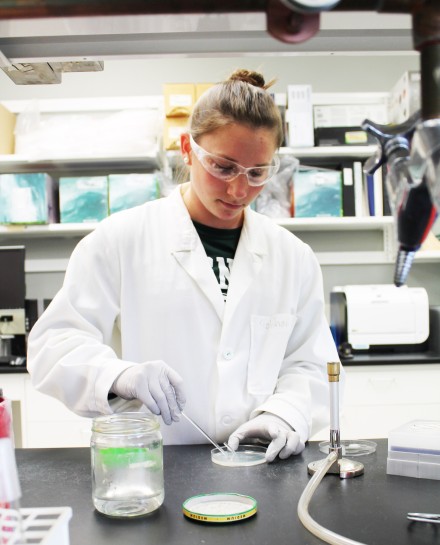
Maria Nunez
"My name is Maria Nunez and I am a Junior Microbiology major at Wagner College in Staten Island, NY. I wanted to be a part of this program at MSU because the use of fossil fuels is harming our environment and causing global warming, which has dramatic effects on earth's future. Bioenergy research and different sources of renewable energy produced by living organisms will help mitigate these negative effects on the environment. Through researching microbiomes and studying microbes within their communities, we will learn how they have adapted to survive their changing environments and allow us to harness that progression to create better bioenergy products. In the Shade Lab, we are researching phyllosphere plant-microbial interactions of switchgrass in order to make improved biofuel crops and promote environmental sustainability."
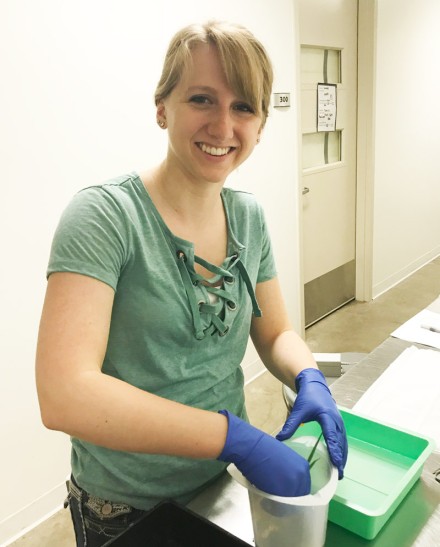
Carlye Szarowicz
"Being a part of a research program such as the GLBRC is a great opportunity for learning, and I hope to take away a lot from the program. By participating in this program, I aim to better understand how the research process is conducted. For example, I look to learn how to professionally go about investigating a hypothesis or research question and how to properly design an experiment. I also want to see what the day-to-day job looks like for a researcher in the laboratory. Another goal of mine is to improve on my presentation skills. Lastly, I hope to gain as much knowledge as I can about biofuels and how we can make them more efficient. I have already learned so much already in just the few short weeks we have been here, and I hope to continue learning more."
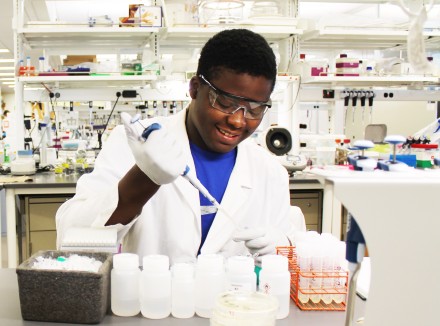
Ka'Shawn Robertson
"The skills I plan on learning this summer include molecular biology techniques like PCR, cloning, bacterial transformations, transient expression in plants, and metabolite analysis through gas chromatography. In terms of knowledge, I plan on learning more about research and molecular biology, how it is beneficial to society and ways we can make better products."
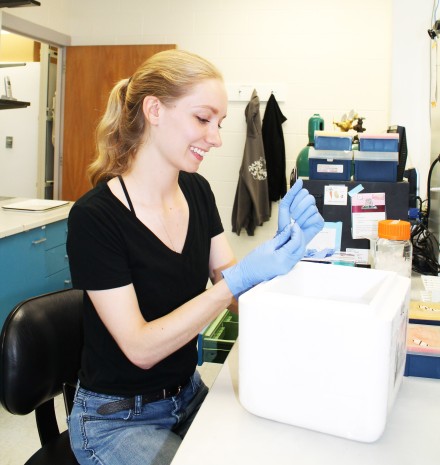
Julie Starkey
"While conducting research as part of the GLBRC program, I hope to not only learn about bioenergy and sustainability but how to be a better scientist. Not only do I anticipate learning about the incredible efforts put towards sustainable biofuel production, but I also look forward to learning how to think critically through challenging questions or daunting tasks. This experience will hopefully allow me to improve my skills in the laboratory and open my eyes to the endless research opportunities that may make the world a better place."
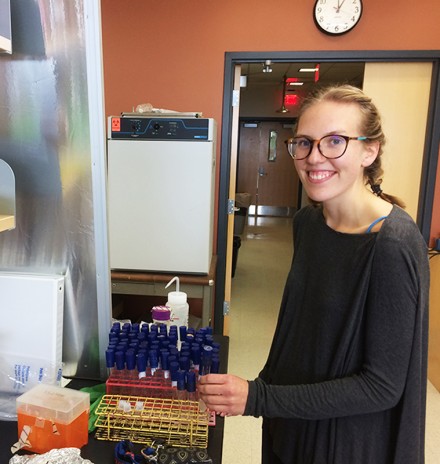
Jennifer Koehler
"This summer I am researching types of bacteria that would be able to convert biofuel waist into lipids (more biofuel). I am really excited about this research since I feel like microbes always get a bad reputation because of germs and they need some more love. Also this research takes something that would normally be unsustainable waste and converts it into something useful that will provide sustainable bioenergy for the future."
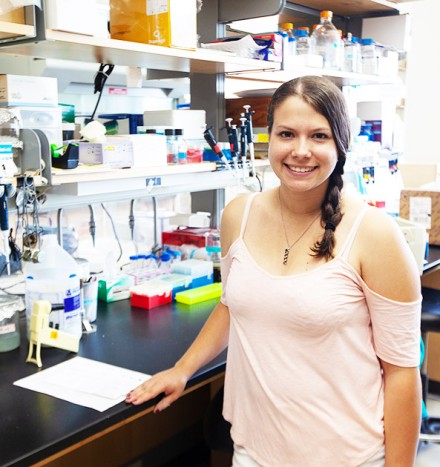
Emily Reed
We live in a society that is running out of fossil fuels, meaning we need to find alternative energy sources like biofuels to sustain life and protect the world we live in. This summer at UW-Madison I am studying the bacterium Z. mobilis, which can metabolize simple carbohydrates to produce ethanol, a biofuel. One of my goals is to insert a gene called lacZ into Z. mobilis. This gene will allow the bacterium to metabolize more complex carbohydrates, like cellulose, which will enable it to make biofuel more efficiently. I will also try to determine if Z. mobilis couples transcription and translation. This will be done by using a green fluorescent protein tag, which will be produced if the bacterium performs these processes at the same time.

